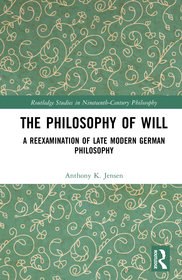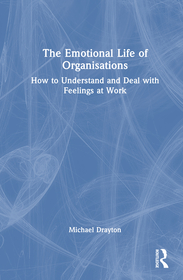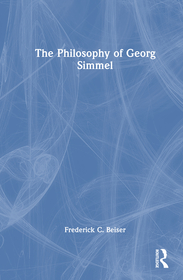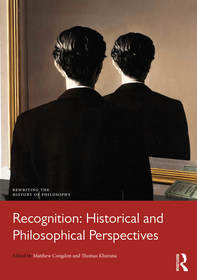
The Philosophy of Will
A Reexamination of Late Modern German Philosophy
Sorozatcím: Routledge Studies in Nineteenth-Century Philosophy;
-
10% KEDVEZMÉNY?
- A kedvezmény csak az 'Értesítés a kedvenc témákról' hírlevelünk címzettjeinek rendeléseire érvényes.
- Kiadói listaár GBP 145.00
-
69 273 Ft (65 975 Ft + 5% áfa)
Az ár azért becsült, mert a rendelés pillanatában nem lehet pontosan tudni, hogy a beérkezéskor milyen lesz a forint árfolyama az adott termék eredeti devizájához képest. Ha a forint romlana, kissé többet, ha javulna, kissé kevesebbet kell majd fizetnie.
- Kedvezmény(ek) 10% (cc. 6 927 Ft off)
- Kedvezményes ár 62 346 Ft (59 378 Ft + 5% áfa)
Iratkozzon fel most és részesüljön kedvezőbb árainkból!
Feliratkozom
69 273 Ft

Beszerezhetőség
Becsült beszerzési idő: A Prosperónál jelenleg nincsen raktáron, de a kiadónál igen. Beszerzés kb. 3-5 hét..
A Prosperónál jelenleg nincsen raktáron.
Why don't you give exact delivery time?
A beszerzés időigényét az eddigi tapasztalatokra alapozva adjuk meg. Azért becsült, mert a terméket külföldről hozzuk be, így a kiadó kiszolgálásának pillanatnyi gyorsaságától is függ. A megadottnál gyorsabb és lassabb szállítás is elképzelhető, de mindent megteszünk, hogy Ön a lehető leghamarabb jusson hozzá a termékhez.
A termék adatai:
- Kiadás sorszáma 1
- Kiadó Routledge
- Megjelenés dátuma 2025. szeptember 29.
- ISBN 9781032973517
- Kötéstípus Keménykötés
- Terjedelem404 oldal
- Méret 229x152 mm
- Súly 910 g
- Nyelv angol 699
Kategóriák
Rövid leírás:
This book argues that the history of 19th-century German philosophy has neglected a crucial narrative: the philosophy of ‘Will’. It examines the interconnected philosophies of ‘Will’ of several notable thinkers, including Goethe, Schelling, Schopenhauer, Eduard von Hartmann, Philipp Mainländer, Julius Bahnsen, and Nietzsche.
TöbbHosszú leírás:
This book argues that the history of 19th-century German philosophy has neglected an important narrative: the philosophy of ‘Will’. It aims to reconsider the history of late modern philosophy in terms of the interconnected philosophies of ‘Will’ of several notable thinkers: Goethe, Schelling, Schopenhauer, Eduard von Hartmann, Philipp Mainländer, Julius Bahnsen, and Nietzsche.
The book has four goals. First, it shows that philosophy of Will really was a tradition, whose members were each working to put forward their notion of Will in self-consciously critical dialogue with the other members. Second, it shows that the 19th-century conception of Will is fundamentally diff erent from the commonplace use of Will as a synonym for what propels intentional or motivated human agency. Each figure considers their specific formulation of Will to be in some sense the essence of reality. Will is dynamic growth in the natural world, expresses itself in artistic creativity, impresses on us our existential condition, is the lever of history, and is the wellspring from which moral values are drawn. Third, by focusing on these philosophers of Will, this book reveals a clearer interrelation between philosophy and the wider history of German intellectual culture than has typically been done. Will theory bears immediate connection to the day’s reigning issues in politics, art, psychology, historiography, and the natural sciences. Finally, it aims to reexamine these thinkers’ position in the history of philosophy. Some, like Goethe, have long been on the periphery of mainstream philosophy. Some, like Hartmann, Mainländer, and Bahnsen, have long been forgotten. And some, like Nietzsche, have been characterized as more a radical innovator and less a critical respondent to the tradition of Will philosophy.
A complex yet lively contribution to the history of philosophical ideas, The Philosophy of Will is essential reading for scholars and graduate students interested in German systematic metaphysics and more broadly anyone interested in the intellectual history of late modern philosophy, science, epistemology, aesthetics, politics, and ethics.
"In this detailed and astute book, Anthony Jensen fundamentally challenges our understanding of nineteenth-century German thought by focusing our attention on the central role of the philosophy of the will. Beyond Schopenhauer and Nietzsche, Jensen highlights the crucial importance of philosophers that are less widely known in the English-speaking world, such as Eduard von Hartmann, Philipp Mainländer, and Julius Bahnsen. This is a major reassessment of the history of nineteenth-century philosophy.“
Christian J. Emden, Rice University, USA
TöbbTartalomjegyzék:
Introduction 1. Goethe, or the Creative Will 2. Schelling, or the Will of Nature 3. Schopenhauer, or the Will to Life 4. Hartmann, or the Unconscious Will 5. Mainländer, or the Will to Death 6. Bahnsen, or the Contradictory Will 7. Nietzsche, or the Will to Power
Több










